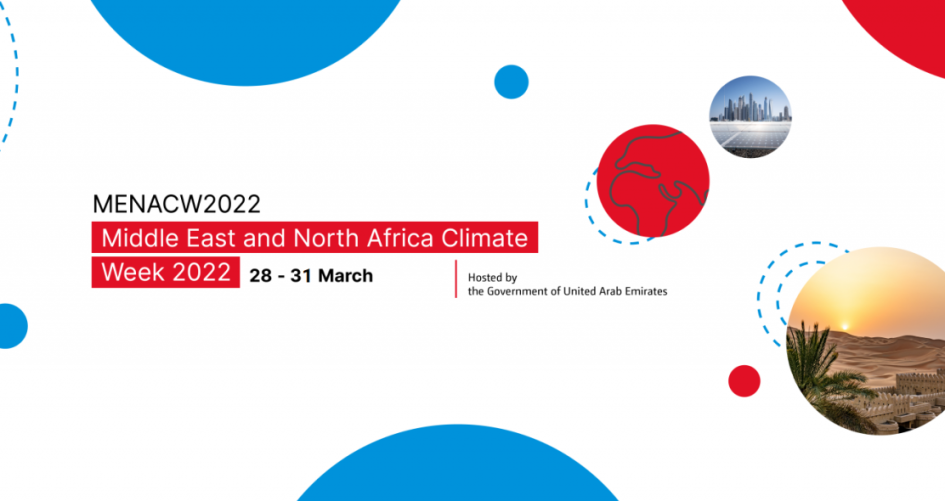Take a Look at what a wide range of stakeholders from youth organization to civil society leaders have prepared for you in the MENA Action Hub!
Action Hub 1
| Title |
Video |
Description |
|
Two IFAD Projects in MENA
By IFAD (6:22 minutes)
|
|
Supporting Rural Resilience to Climate Change: A Virtual Trip across MENA with two projects: Djibouti, Restoring Mangrove Forests and Sudan, Resolving Climate Conflicts |
Action Hub 2
| Title |
Video |
Description |
|
Green Energy for Safe Migration
By Nature Conservation Egypt (7:59 minutes)
|
Credit:
Nature Conservation Egypt
|
Green Energy for Safe Migration. Toward a bird friendly energy infrastructure; power lines survey by NCE and NCS, EEAA. This is a project with the Ministry of Electricity to account death among birds in the power lines infrastructures. We hope to improve the natural resources management and its usage in Egypt |
Action Hub 3
| Title |
Video |
Description |
|
DeserTech Innovation Technology
By DeserTech innovation community (4:08 minutes)
|
Credit:
DeserTech Community
|
Desert environments cover approximately 40% of the world's land area and are already home to over 20% percent of the world's population. According to the UN, by 2025, 1.8 billion people will experience "absolute water scarcity" with 2/3 of the world living under water scarce conditions. Desertification poses serious implications for biodiversity, eco-safety, poverty eradication, socio-economic stability, and sustainable development.
The DeserTech Community was created drawing on Israel’s experience in coping with resource scarcity in an arid and semi-arid climate. The DeserTech community brings together entrepreneurs, startups, researchers, industry and policymakers, and is designed to capture the synergies among these actors to spur the development and commercialization of new technologies that enable sustainable living in arid climates.
The DeserTech community is a joint initiative of the Merage Foundation Israel, the Israel Innovation Institute, The Ministry of Environmental Protection and Ben Gurion University.
The community seeks to promote and implement technological solutions in the MENA region, who's in the frontline of desertification and climate change. |
Action Hub 4
| Title |
Video |
Description |
|
Regenerative foodscapes as an integrated solution for climate-resilient development
By The Nature Conservancy (2:36 minutes)
|
Credit:
The Nature Conservancy
|
By mid-century, accelerating climate change will be generating acute stress on the global food system, a system which is also responsible for more than a quarter of global greenhouse gas emissions and is the primary driver of nature loss. Shifting to a regenerative food system – one which increases natural capital and ecosystem services while food is produced – is imperative and will reorientate the system towards social and environmental outcomes as well as production. But reforming the global food system requires moving from high level concepts to tangible actions in place. Regenerative foodscapes put food production at the heart of an economy-wide, landscape-scale approach and by working at the foodscape level we can envisage how policy, markets and socio-cultural norms impact transition and hence model trade-offs and understand barriers and opportunities.
Focusing on developing an integrated systems-level approach that brings in science, policy levers, catalytic financing and market led initiatives, we can support the transition of foodscapes to more regenerative approaches that increase farmers’ and the agriculture sector ́s climate resilience and reduce GHG emissions by mainstreaming ecosystem services and biodiversity in production systems. By strengthening or creating the enabling mechanisms to support and ensure systemic change across diverse foodscapes and value chains, we can support economy-wide transitions that ultimately influence global, system-level change that leads to new sector norms
|

